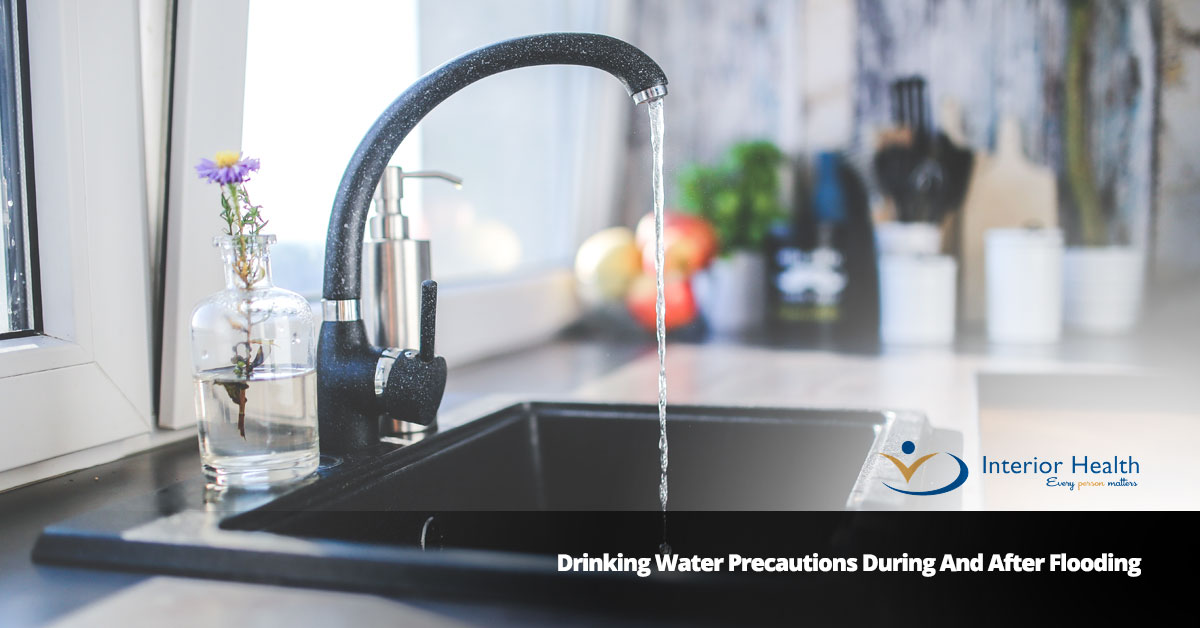Public Service Announcement from Interior Health – June 1, 2020 DRINKING WATER …

[ad_1]
Public Service Announcement from Interior Health – June 1, 2020
DRINKING WATER PRECAUTIONS DURING AND AFTER FLOODING
In areas throughout the Interior region, river levels have been high due to snow melt and rainfall. The River Forecast Centre continues to monitor conditions. Part of being prepared includes being aware of water safety following local flooding.
Drinking water can be affected during and after floods. If you are unsure of the safety of your water following a flood, use an alternate source of water. Individuals with compromised immune systems and chronic illnesses, infants, or the elderly are at higher risk when the drinking water is affected. Floods may significantly increase risk to your health by introducing raw sewage, chemical contaminants, and debris into water sources.
It is important to remember the following when your drinking water is affected by floods:
• Do not drink or use any water that has been contaminated with flood waters. Do not swallow water while you are showering or bathing. Your drinking water sources may need to be treated and tested before consumption can resume.
• For cleaning of your dishes, rinse them for a minute in diluted bleach (one tablespoon of household bleach per gallon of tap water). If you are using a dishwasher, use the hot wash and dry cycle.
• Many disease causing microbial agents, such as E. coli may be present in water impacted by flooding. Wash your hands with soap after contact with flood waters or handling items that
have come into contact with flood waters.
PUBLIC WATER SUPPLY SYSTEM USERS:
• Contact your supplier for information and pay attention to information shared by your local media such as community bulletins, newspapers, and local radio stations.
• You can also visit your Regional District website to see if your drinking water is impacted by the flood.
• Your water supplier may issue a Boil Water Notice or Do Not Consume advisory based on the health risks.
A current list of water advisories and notices is available at: www.drinkingwaterforeveryone.ca. (Open in Google Chrome, Safari, or Firefox.)
PRIVATE WATER SYSTEM USERS:
• Do not drink or use water that has been impacted by floods.
• Your drinking water source needs to be tested and may require treatment before consumption can resume.
• Even if you are not feeling sick, your water may be unsafe.
• Some contaminants found in impacted water cannot be seen, tasted or smelled, but can be harmful to your health.
For information on testing your water, refer to www.healthlinkbc.ca/healthlinkbc-files/well-water-testing (this information is also applicable to surface water sources).
For information on disinfecting your water system, refer to www.healthlinkbc.ca/healthlinkb…/disinfecting-drinking-water.
For more flood information, please visit www.interiorhealth.ca/…/Emergency/Floods…/Pages/default.aspx or contact your nearest Environmental Public Health office: https://www.interiorhealth.ca/…/Health%20Protection%20Offic….

[ad_2]
Source
